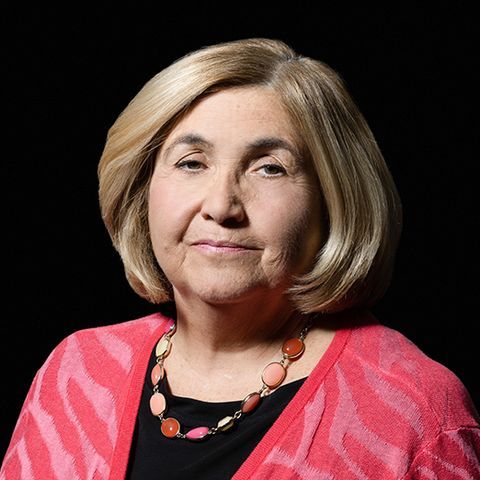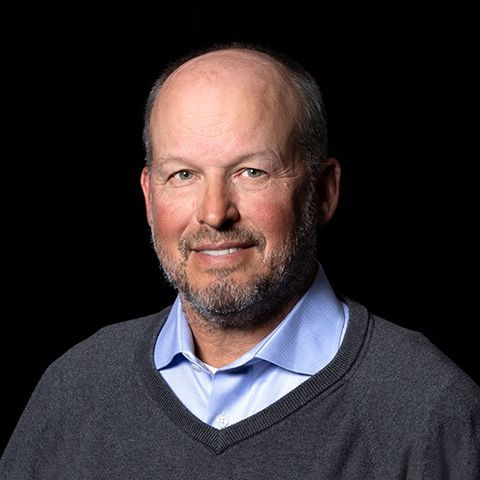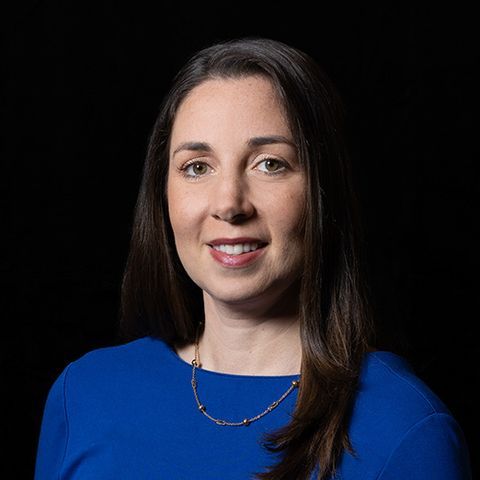Alerts
OFAC and BIS Amend Cuba Sanctions Regulations
February 1, 2016
To implement certain policy measures announced by President Barack Obama on Dec. 17, 2014, on Jan. 26, 2016, the Department of the Treasury’s Office of Foreign Assets Control (“OFAC”) and the Department of Commerce’s Bureau of Industry and Security (“BIS”), in coordinated action, amended the Cuban Assets Control Regulations (“CACR”), 31 C.F.R. Part 515, and Export Administration Regulations (“EAR”), 15 C.F.R. Parts 730-774, respectively (“Regulatory Amendments”). These Regulatory Amendments are effective immediately and present new business opportunities for U.S. persons and entities willing to navigate the dynamic regulatory environment.
While many hope that the continuing relaxation of U.S. sanctions against Cuba will create significant trade and business opportunities for U.S. persons and entities, the general embargo remains in place. Persons subject to U.S. jurisdiction continue to be prohibited from doing business or investing in Cuba unless licensed by OFAC. Moreover, travel to Cuba for tourist activities remains prohibited. That being said, the regulatory easing accomplished by the Regulatory Amendments relates to: (1) exports and reexports to Cuba of certain items; (2) payment and financing terms for authorized exports to Cuba; (3) travel and travel-related transactions; (4) air carrier services; (5) the temporary sojourn of aircraft and vessels; and (6) humanitarian projects in Cuba. We discuss each of these areas in this Alert.
Exports
BIS amended the licensing policy in Section 746.2 of the EAR by transitioning the approval of certain exports and reexports to Cuba from a case-by-case basis to a general policy of approval. Specifically, applications for licenses to export or reexport the following items to Cuba will generally be approved:
- Telecommunications items that would improve communications to, from and among the Cuban people;
- Certain commodities and software to human rights organizations or to individuals and non-governmental organizations that promote independent activity intended to strengthen civil society in Cuba;
- Commodities and software to U.S. news bureaus in Cuba whose primary purpose is the gathering and dissemination of news to the general public;
- Agricultural items that are outside the scope of agricultural commodities as defined in Part 772 of the EAR, such as insecticides, pesticides and herbicides, and agricultural commodities not eligible for License Exception AGR (i.e., items not designated EAR99);
- Items necessary to ensure the safety of civil aviation and the safe operation of commercial aircraft engaged in international air transportation, including the export or reexport to Cuba of such aircraft leased to state-owned enterprises; and
- Items necessary for the environmental protection of U.S. and international air quality, waters or coastlines (including items related to renewable energy or energy efficiency).[1]
BIS also adopted a case-by-case review policy for exports and reexports to Cuba of certain items that meet the needs of the Cuban people, including exports and reexports to state-owned enterprises that provide goods and services for the use and benefit of the Cuban people. This includes items for:
- Agricultural production, artistic endeavors (including the creation of public content, historic and cultural works and preservation), education, food processing, disaster preparedness, relief and response, public health and sanitation, residential construction and renovation, and public transportation;
- Wholesale and retail distribution for domestic consumption by the Cuban people; and
- Construction of facilities for treating public water supplies, facilities for supplying electricity or other energy to the Cuban people, sports and recreation facilities, and other infrastructure that directly benefits the Cuban people.[2]
The policy of case-by-case review is intended to facilitate exports and reexports to meet the needs of the Cuban people. Accordingly, a general policy of denial will still apply to exports and reexports of items for use by state-owned enterprises that primarily generate revenue for the state, including those in the tourism industry and those engaged in the extraction or production of minerals or other raw materials. Additionally, applications to export or reexport items for the Cuban military, police, intelligence and security services remain subject to a general policy of denial.
Furthermore, provided that the exportation or reexportation is authorized by BIS, separate written authorization from OFAC may not be required. Travel and travel-related transactions incident to the exportation of certain authorized goods from the United States to Cuba, specifically to conduct “market research, commercial marketing, sales negotiation, accompanied delivery, installation, or servicing in Cuba” are authorized by general license.[3]
Financing
OFAC amended Section 515.533(a) of the CACR to remove the restrictions on payment and financing terms for all exports from the United States or reexports of 100 percent U.S.-origin items from a third country, except for agricultural items or commodities. Whereas the previous regulations limited payment and financing for all authorized exports to cash-in-advance or third-country financing, U.S. depository institutions are now authorized to provide financing, such as issuing, advising, negotiating, paying or confirming letters of credit (including letters of credit issued by a financial institution that is a national of Cuba), accepting collateral for issuing or confirming letters of credit, and processing documentary collections.[4] For example, a U.S. bank can now serve as the advising or confirming bank for a letter of credit issued by a Cuban bank.
Other examples of permissible payment and financing terms include: cash in advance; sales on an open account; and financing by third-country financial institutions or U.S. financial institutions.[5]
Travel and Travel-Related Transactions
Information and Informational Materials
OFAC issued a general license that authorizes, subject to conditions, transactions that are directly incident to professional media or artistic productions of information or informational materials for exportation, importation or transmission, including the filming or production of media programs (such as movies and television programs), the recording of music, and the creation of artworks in Cuba, provided the traveler is regularly employed in or has demonstrated professional experience in a field relevant to such professional media or artistic productions.[6] Furthermore, the section of the Cuba regulations on transactions related to information and informational materials, 31 C.F.R. Section 515.545, was expanded to authorize “transactions relating to the creation, dissemination, artistic or other substantive alteration, or enhancement of informational materials … including employment of Cuban nationals and remittance of royalties or other payments in connection with such transactions.”[7] The regulations, however, do not authorize marketing or business consulting services related to the dissemination of such informational materials.[8]
Professional Meetings
OFAC will now authorize by general license travel-related and other transactions to organize professional meetings or conferences in Cuba, provided the meeting or conference directly relates to the traveler’s profession, background or area of expertise.[9] This general license also covers travelers who are employees or contractors of the organizing entity. The prior general license authorized only attendance at such meetings or conferences.
Public Performances, Clinics, Workshops, and Athletic and Other Competitions and Exhibitions
In addition, OFAC amended the general license authorizing travel-related and other transactions to organize amateur and semi-professional international sports federation competitions and public performances, clinics, workshops, other athletic or non-athletic competitions, and exhibitions in Cuba.[10] Notably, the regulations added the following example:
A U.S. concert promoter wishes to organize a musical event in Cuba that would be open to the public and feature U.S. musical groups. The organizing of the musical event in Cuba by the U.S. concert promoter and the participation by U.S. musical groups in the event would qualify for the general license in paragraph (b).[11]
Furthermore, there is a general license that authorizes marketing transactions incident to amateur and semi-professional international sports federation competitions and public performances, clinics, workshops, other athletic or non-athletic competitions, and exhibitions in Cuba.[12] Travelers to Cuba, however, may not engage in free time or recreation in excess of that consistent with a full-time schedule. In addition, the record-keeping requirements attendant to a general license for travel to Cuba remain in place.
Notably, OFAC removed the requirements that all U.S. profits from the event after costs be donated to an independent nongovernmental organization in Cuba or a U.S.-based charity and that workshops and clinics be run, at least in part, in part by authorized U.S. travelers. The requirement that the event be “open for attendance, and in relevant situations participation, by the Cuban public” remains in place.[13]
Air Carrier Services
In order to facilitate airline service with Cuban airlines, OFAC amended the CACR to authorize the entry into blocked space, code-sharing and leasing arrangements with Cuban nationals.[14]
Temporary Sojourn
OFAC will now authorize travel-related and other transactions directly incident to the facilitation of the temporary sojourn of aircraft and vessels as authorized by the Department of Commerce for travel between the United States and Cuba, including by certain personnel required for normal operation and service on board a vessel or aircraft or to provide services to a vessel in port or aircraft on the ground.[15] The aircraft or vessel, however, must be transporting authorized individuals between the United States and Cuba, and the travel-related transactions by such personnel are limited to the duration and scope of their duties.[16]
Humanitarian Projects
OFAC expanded the list of authorized humanitarian projects to include disaster preparedness and response.[17]
If you have any questions concerning this Alert, please contact your attorney at Schulte Roth & Zabel or one of the following attorneys: Betty Santangelo, Gary Stein, Peter H. White, Seetha Ramachandran, Michael P. Court, Melissa G.R. Goldstein or Matthew J. Moses.
[1] 15 C.F.R. § 746.2(b)(2).
[2] 15 C.F.R. § 746.2(b)(3).
[3] 31 C.F.R. § 515.533(d).
[4] 31 C.F.R. § 515.584(f).
[5] See U.S. Department of the Treasury’s Office of Foreign Assets Control, Frequently Asked Questions Related to Cuba , #64 (Jan. 26, 2016).
[6] 31 C.F.R. § 515.545(b)(2).
[7] 31 C.F.R. § 515.545(a) (emphasis added).
[8] 31 C.F.R. § 515.545(a).
[9] 31 C.F.R. § 515.564(a)(2).
[10] 31 C.F.R. § 515.567.
[11] 31 C.F.R. § 515.567(a) and (b), Example 2.
[12] 31 C.F.R. § 515.567(a) and (b), Note 2.
[13] 31 C.F.R. § 515.567(b).
[14] 31 C.F.R. § 515.572(2)(ii).
[15] 31 C.F.R. § 515.533(d)(2).
[16] 31 C.F.R. § 515.533(d)(2)(ii).
[17] 31 C.F.R. § 515.575(b).
This information has been prepared by Schulte Roth & Zabel LLP (“SRZ”) for general informational purposes only. It does not constitute legal advice, and is presented without any representation or warranty as to its accuracy, completeness or timeliness. Transmission or receipt of this information does not create an attorney-client relationship with SRZ. Electronic mail or other communications with SRZ cannot be guaranteed to be confidential and will not (without SRZ agreement) create an attorney-client relationship with SRZ. Parties seeking advice should consult with legal counsel familiar with their particular circumstances. The contents of these materials may constitute attorney advertising under the regulations of various jurisdictions.




